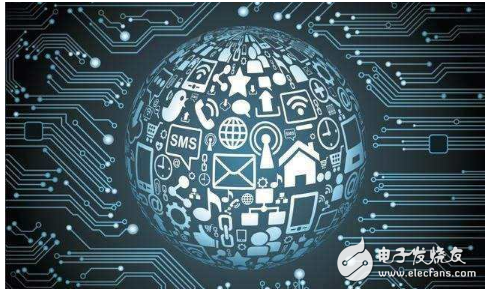Blockchain technology is a technology for creating trust, which can realize peer-to-peer value transfer. Based on this feature, the blockchain can be applied in too many fields. The ultimate form of future construction is not to say what kind of scene is suitable for use. The blockchain, but everything is carried on the basis of the blockchain.
The blockchain scenarios generally recognized in the industry include the following: interbank clearing, medical certificates, equity transactions, supply chain traceability, supply chain finance, etc. It should be said that the characteristics of the blockchain are really suitable for these scenarios, but These scenes generally involve large scale and multi-party organizations. Few companies are willing to take the initiative, so the blockchain has been hot for a year and a half, and almost none of these industries have landed.

First, currency applications such as Bitcoin, Ethereum, etc.;
Second, traditional financial fields, such as blockchain technology alliance R3, Hyperledger, etc., gathered together Goldman Sachs, Ping An, HSBC, IBM and other institutions, committed to cross-border payment, financial bill management and other application scenarios in the financial sector;
The third is non-financial areas such as energy, luxury goods, telecommunications, and the Internet.
The listed companies in the A-share computer sector are actively deploying the blockchain in terms of equity investment, technology research and development, and project cooperation. However, because of the incubation of a new team, new projects/products/services, it takes a certain amount of time. Many listed companies are still in the early stage of trial and error trials in terms of blockchain technology research and development and scenario application.
Regarding the application of blockchain in the financial and non-financial fields, Industrial Securities said that many traditional financial institutions, including banks and exchanges, have attached great importance to technologies such as distributed ledgers in blockchains and have begun to explore their The practical application of border payment, bill transaction, securities issuance, etc., some industry leaders have entered the concept verification and project implementation stage.
With the improvement and innovation of the underlying algorithms such as the consensus mechanism, Internet companies and non-financial companies have begun to explore the possibility of blockchain application in the financial sector such as supply chain management, copyright circulation, and case management.

The main advantages of the blockchain are decentralization (no intermediation required), efficient and transparent processes, and high data security. In the future, digital information can be added to the blockchain.
Stock market: The stock exchange market is also a very suitable application area for blockchain. The degree of convergence between the two is very high. Traditional securities transactions need to be coordinated by the four major institutions: central clearing houses, banks, securities companies and exchanges. Work, in order to complete the stock transaction, the efficiency is low, the cost is high, and the blockchain system can complete the one-stop service independently. Cross-border payment and settlement: On July 14, 2016, it announced the successful use of SAP and Ripple technology to send 1,000 Canadian dollars to Germany in 20 seconds, and such payment generally takes 6 working days to complete, the bank The point-to-point payment method based on blockchain technology, “not only can be paid around the clock, real-time payment, easy cash withdrawal and no hidden costs, but also help to reduce the risk of cross-border e-commerce funds and meet cross-border e-commerce settlement payment services. Timeliness and convenience requirements"
Digital streaming media such as music and games: Solving the problems of the music industry with the transparency of blockchain. The emergence of streaming media, while benefiting the people of the world, can hear the music you want to listen to anytime, anywhere, but the musicians are against it. With this model, almost all of the technology giants have deployed streaming media. The emergence of this model has caused the model to make the benefits of digital music no longer as transparent as traditional records (number of records* price), such as Taylor Swift. And adele refused to cooperate with the streaming platform in order to promote record sales.
Voting system: Many commercial organizations are actively building a blockchain voting system. Global securities trading giant Nasdaq announced in February that it is developing a shareholder electronic voting system based on blockchain technology. In the future, people can vote on their mobile phones and record them forever on the blockchain. "If large-scale voting campaigns such as the presidential election use blockchain technology, then there is no need to worry about cheating in the election process.
Payment system: The electronic cash system began to show the trend of replacing traditional banks. Banks have realized the sense of crisis. Many banks' internal training has begun to focus on new technologies such as blockchain. It is not whimsical to join the traditional banking system in the future blockchain. There are already 30 R3 blockchain alliances formed by the world's top commercial banks.

YESWITCH ELECTRONICS CO., LTD. , https://www.yeswitches.com